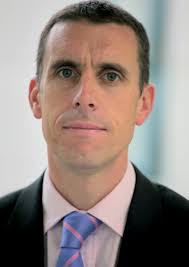Brighton and Hove hospital bosses have urged patients: “Please don’t come to A&E.”
The trust that runs the Royal Sussex County Hospital in Brighton posted a prominent “urgent message” on its website.
The Brighton and Sussex University Hospitals NHS Trust website said: “We are currently under severe pressure. Please don’t come to A&E unless you are in need of emergency treatment.
“Non-emergency patients are likely to have an extremely long wait and will be taking staff away from caring for patients who need emergency or life-saving care.
“Because of this severe pressure some appointments are being cancelled but we will call the patients affected directly. If you haven’t heard from us, please attend your appointment as normal.

“Please bear with us during this time of unprecedented demand and help us to prioritise patients who are in most urgent need.”
Yesterday it was suggested that the trust was the eighth-worst in the country for meeting the target of treating 95 per cent of accident and emergency (A&E) patients within four hours.
The hospital trust chief executive Matthew Kershaw said: “It has, once again, been an exceptionally challenging time for hospitals throughout the NHS, including ours.
“I want to pay tribute to all our staff for their ongoing dedication and hard work in the face of this ongoing pressure.”
Mr Kershaw said that there had been “an extreme peak in demand over the weekend just past during which, for example, our ambulance service received a 30 per cent increase in the number of people calling 999, which equates to around 1,500 more calls, than for the same weekend last year.
“We are all working together to manage this peak but it would have been remiss of me not to acknowledge just how tough it feels for everyone right now.
“For the year as a whole, the number of people attending A&E is up by about 7 per cent whereas the number of people being admitted in an emergency hasn’t really changed.
“This suggests that there are still people coming to A&E who could be better managed elsewhere and we continue to work with our clinical commissioning groups and others to try to address this.
“The overall picture is though much more complex.
“Currently there are high numbers of very sick people attending our emergency departments who do need emergency treatment and acute hospital care.
“And because these patients are staying longer than average it is increasingly difficult to admit the new patients who keep coming.
“In addition there are patients in our beds who no longer need to be but who need a different type of facility or a package of care in place before we can safely discharge them.”

In a message to staff and patients Mr Kershaw said: “I do realise that for most of you, who have been here much longer than I have, this cycle of prolonged periods of pressure is not new and I want to reassure you that we are making progress on longer-term improvements, within the hospital and the system as a whole, to break this cycle.”
Brighton GP Christa Beesley, the chief clinical officer of the Brighton and Hove Clinical Commissioning Group (CCG), said: “A&E and 999 are for emergencies.
“If it’s not an emergency, other services are available, 24 hours a day, 7 days a week.”
Dr Beesley said: “We know that one in three visits to A&E could be dealt with outside of hospital.
“People often think that visiting their local A&E or calling 999 is their only option when their GP surgery is closed but this is not the case.
“There are lots of services that offer treatment and advice in the evenings and at the weekend, including local pharmacists, who are trained to help deal with minor ailments, walk-in centres, NHS 111 and out-of-hours GP services.”
The South East Coast Ambulance Service NHS Foundation Trust said that it received more than 6,000 calls across the region over the weekend.
This was close to 1,400 more than the number received across the comparable weekend last year – an increase of about 28 per cent.
But the number of calls categorised as being the most serious and life-threatening increased by just under 100.
On New Year’s Eve, the ambulance trust handled more than 1,100 calls between 10pm and 4am – an average of more than three calls a minute, it said.
The medical director of the South East Coast Ambulance Service Jane Pateman said: “Knowing where to go and who to call is key.
“Please remember that 999 should be used for seriously ill or injured patients only and NHS 111 can put you in touch with the out-of-hours service when you need it and your local GP surgery is closed or when you cannot contact your GP surgery.”
Dr Pateman added: “NHS 111 in Sussex is run by the ambulance service. The helpline can also tell you where your nearest walk-in clinic is and late-night pharmacies.
“They can even call an ambulance for you if you do need to go to A&E.”








I blame GP receptionists with their asinine Kafka-esque “ring back at 8:30am tomorrow” schtick. They simply refuse to let people book appointments because it would make their waiting-time targets look bad.
Is there a topic upon which Feline1 is not an expert?
Don’t feed the troll Duncan
No Duncan, as I know all the facts in the world.